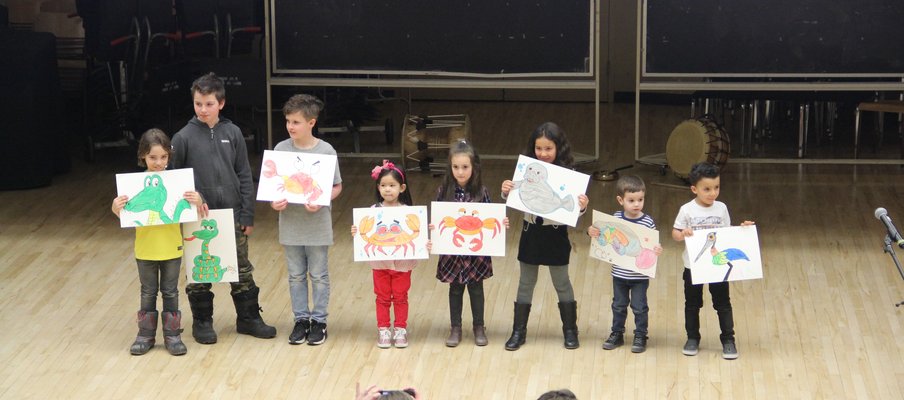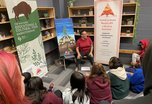Program Helps Heritage Languages Thrive

Related Programs

This is a land of many languages. From the diversity of languages of the First Peoples to those of the many newcomers who have arrived over the years, Saskatchewan brings together a wealth of different linguistic cultures. Work to encourage the use and preservation of languages is an ongoing challenge. This is why the Saskatchewan Association of International Languages (SAIL), recently rebranded from the Saskatchewan Organization for Heritage Languages
(SOHL), is dedicated to helping heritage languages thrive in the province.
For the last 35 years, SAIL has been supporting knowledgeable volunteer language teachers throughout the province, giving students training in international languages and culture.
Gord Zakreski, executive director, SAIL, explains that while the federal government has responsibility for Canada’s two official languages, English and French, the grassroots’ demand to pay attention to, what were then referred to as “heritage” languages, led to the organization’s creation in 1985.
Its MiniLanguage Lessons Program (MLLP), which delivers eight hours of language and cultural lessons to classrooms, was designed “to help students learn about the other languages and cultures of other countries and societies,” Zakreski says.
“This in turn was aimed at promoting multiculturalism and a better understanding here in Saskatchewan of other cultures around the world.”
Of course, students can’t actually become fluent in a language in eight, onehour sessions, but they can learn some useful words, like “hello”, days of the week, months, time and so on and develop an interest in language learning from a young age.
SAIL is currently offering miniclasses in 12 languages: Arabic, Chinese, German, Tagalog (Philippines), Korean, Mandarin, Russian, Spanish, Tamil, Ukrainian, Yoruba and Cree. Interestingly, in the last few years, Cree has been the language most in demand, often in schools that have few or no Indigenous students, Zakreski says. “We feel this is a positive carryover from the Truth and Reconciliation Report and its Calls to Action.”
In the 35 years of its operation, over 10,000 students across Saskatchewan have benefitted from the program.
Over the years, the program has played an important role in assisting and facilitating the integration of recent immigrant students within the school system. According to Zakreski, the minilanguage lessons introduce the language of newcomer students to their classmates, leading to a breakdown of barriers and promotion of inclusion throughout the school.
“If there’s a new student from Afghanistan or Syria, it really helps if other students can say hello and ‘my name is soanso, what’s yours?’” Zakreski says.
And, he adds, “If you can reach out to children, it usually spills over to the parents.” The experience for the majority of the students “has been awesome,” he says. “The classroom feedbacks have been great and both the classroom teachers and students always look forward to having the MLLP program for the next session.”
During the COVID19 pandemic, the program has been delivered via a hybrid of inperson and online classes. The online classes “aren’t as good, but it’s still a great experience for the kids.”
SAIL, which is funded through SaskCulture and Sask Lotteries, in turn provides financial assistance to individual language schools operated by various ethnic groups. These schools have become increasingly popular, with more than 50 operating throughout the province. In Saskatoon alone, as an example, there are 28 such schools, teaching 21 different languages, from Arabic to Yoruba.
Students from many of these schools take part in other SAIL projects, including annual Heritage Language Day celebrations, which showcase the diverse languages and culture being taught with displays, singing and dancing.




